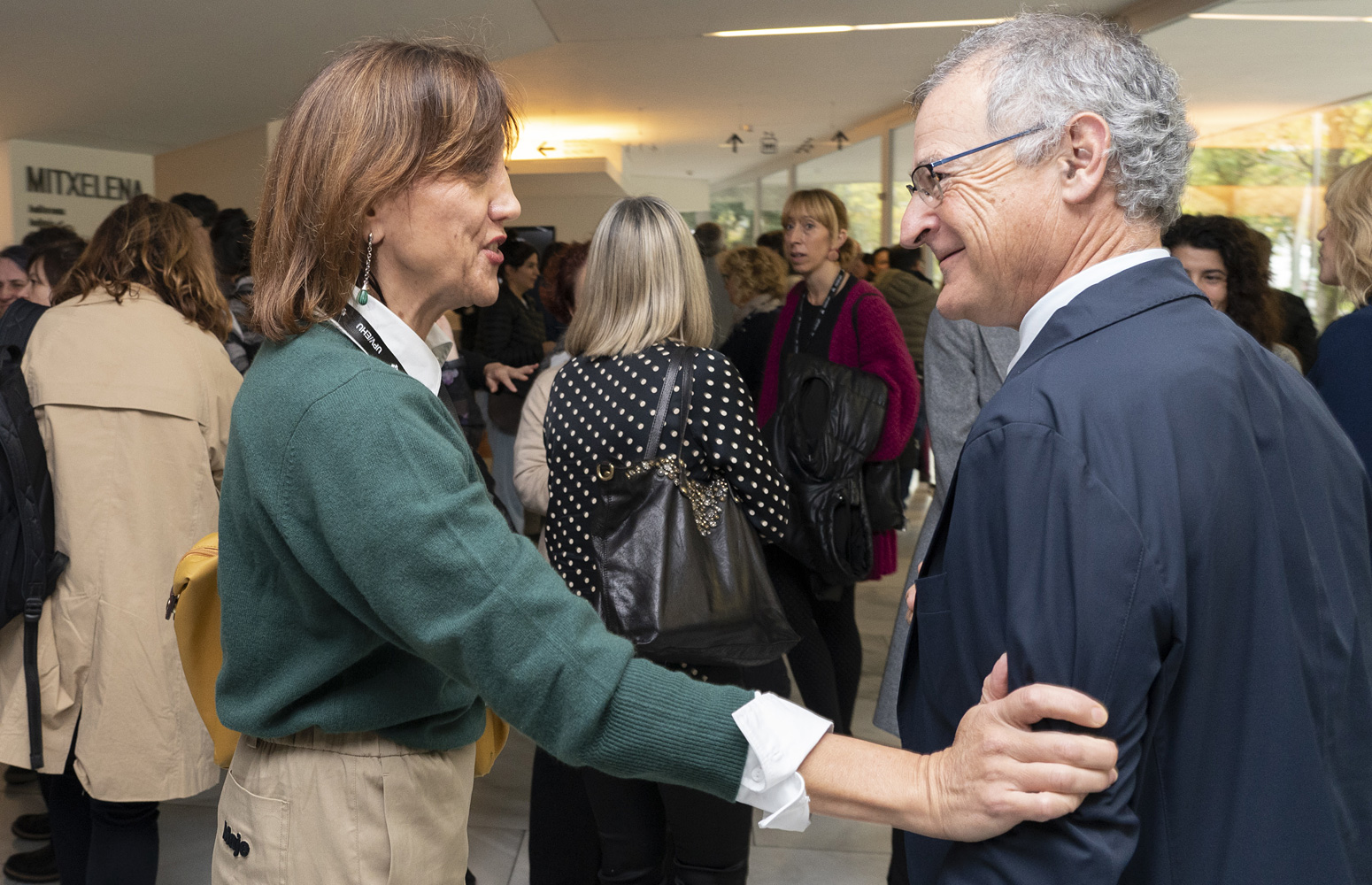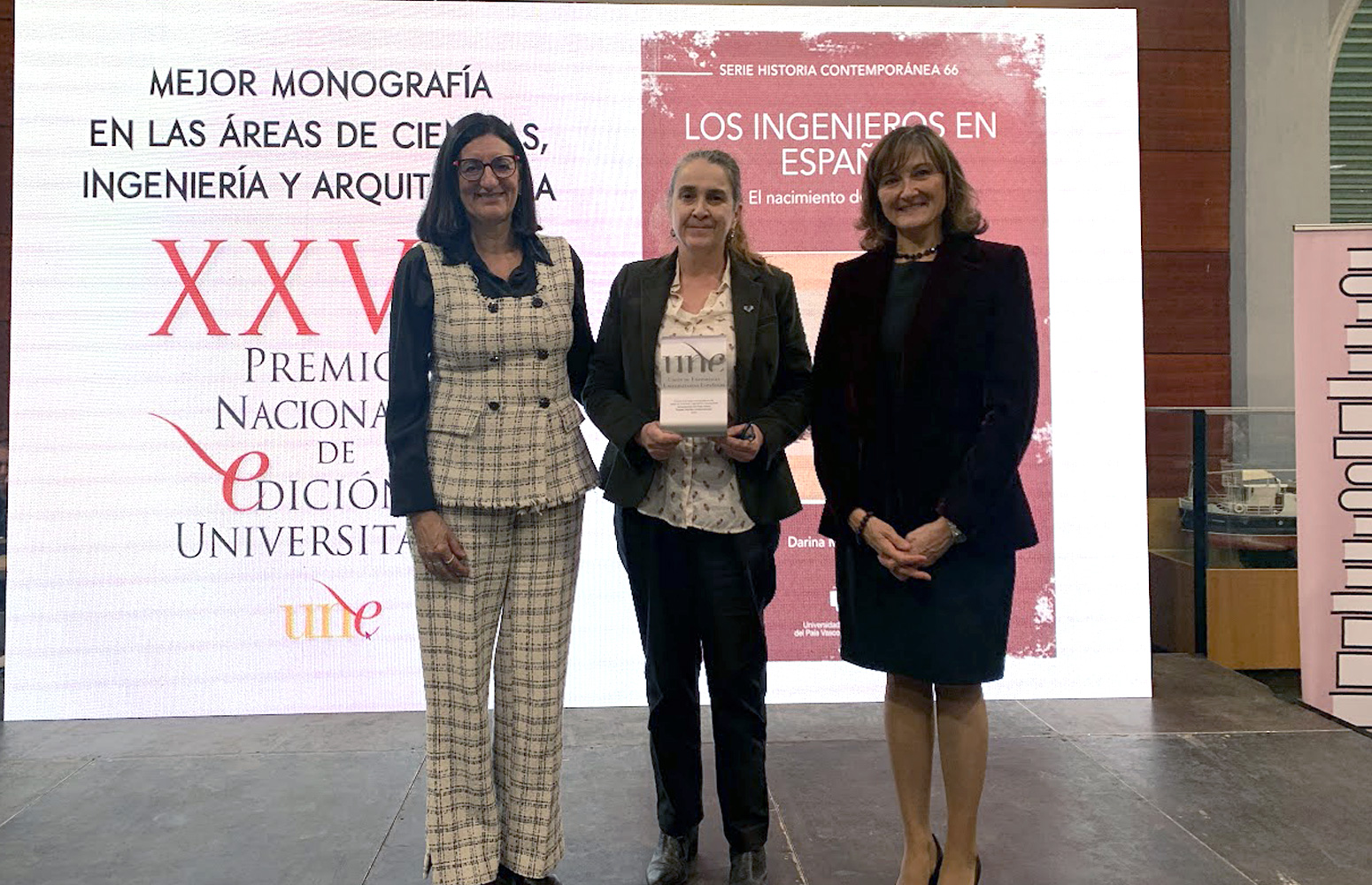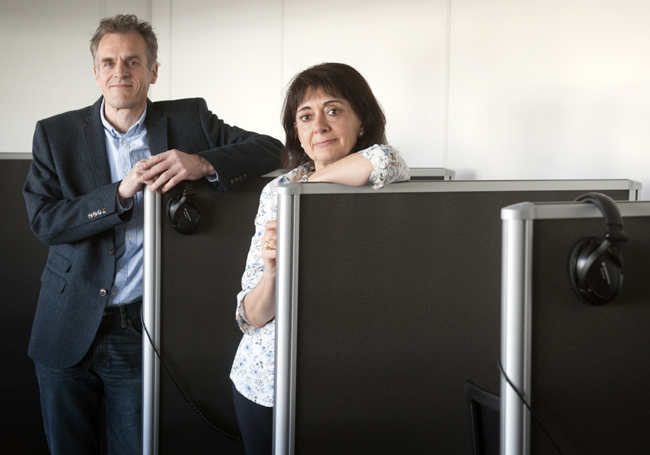The UPV/EHU’s Language and Speech Laboratory (LasLab) research group shows that it is possible to learn the sounds of a foreign language in a noisy environment, recreating the uncontrolled conditions under which listeners acquire their native language.
-

Ferreirak eta Bengoetxeak beren programak aurkeztu dituzte UPV/EHUko Klaustroan
-

UPV/EHUko 19 diziplina, munduko 500 onenen artean, Shanghaiko rankingaren arabera
-

Zientzia, Ingeniaritza eta Arkitekturako monografiarik onena
-

Medikuntza birsortzailearen etorkizunari buruzko gakoak
-

Beste pertsona bat al gara beste hizkuntza bat hitz egitean?
Noise is no barrier to learning the sounds of foreign languages
A research group at the UPV/EHU-University of the Basque Country has shown that sounds are acquired as effectively in background noise as in quiet environments
- Research
First publication date: 12/06/2018

Who has not tried to maintain a conversation in a foreign language in a noisy bar and has realised that they can hardly understand anything? Many students of foreign languages have experienced difficulty in understanding the language outside the classroom. In real life, conversations usually take place in bustling environments such as restaurants, railway stations or traffic-filled streets, with many simultaneous sources of noise and speakers. In these situations language learners find it much more difficult to understand the foreign language than their native languages. This is due to the fact that when children learn their mother tongues, they do so with a great variety of speakers and in very different circumstances and environments, often accompanied by noise and other disturbances, which is par for the course in the real world. As a consequence, they develop strategies enabling them to understand their language in these situations.
The difficulties faced by non-native learners prompted the UPV/EHU researchers Maria Luisa García-Lecumberri and Martin Cooke to explore whether including background noise in the training of foreign sounds could be beneficial in understanding the foreign language. Nevertheless, there was also the possibility that given the added difficulty, inserting noise into the training could end up being counterproductive.
However, in their study they dispelled any doubts and showed that teaching the sounds of a language against background noise firstly is not in any way detrimental as they are acquired just as effectively as in a quiet environment. And secondly, learners managed to identify sounds better in the presence of noise.
88 (Basque and Spanish) bilingual speakers participated in the study. Two groups of listeners underwent training in English consonant identification, some with and some without background noise, during 10 sessions. Over the course of five weeks they worked on 200 examples of each English consonant, more than 4,800 items in total. They were compared with two control groups exposed to vowels with and without noise and with a group of native English speakers.
«The results show that training with noise is effective and not detrimental. What is more, the students trained in the presence of noise were slightly better at identifying consonants than those trained in quiet environments,» pointed out Maria Luisa García-Lecumberri.
The most noticeable thing about the study is how beneficial training is when it comes to understanding the foreign language in real life. «Beforehand, non-native listeners had errors in nearly half the consonants presented in a noise, while after training with background noise the errors fell to nearly native levels, approximately 3 errors in every 10 consonants». Likewise, when it came to perceiving the consonants in quiet conditions, listeners trained in noise obtained very similar scores to those trained in the absence of noise, with similar scores as those of native speakers.
«Our study reveals the importance of reproducing natural conditions when a foreign language is learnt, including a variety of speakers and conditons with noise of different kinds, as opposed to teaching in aseptic lab conditions,» concluded Martin Cooke. The next step is to find out more about how learning in noise works. One hypothesis that the research group is considering is that listening to sounds with noise stimulates the listeners to focus on the most robust amongst the multiple cues to the identify of each sound.
Additional information
Dr María Luisa García-Lecumberri is Full Professor in English Phonetics at the UPV/EHU’s Faculty of Arts and Dr Martin Cooke is Ikerbasque Research Professor. They both belong to the Language and Speech Laboratory (LasLab) research group.
Bibliographic reference
- Effects of exposure to noise during perceptual training of non-native language sounds
- Journal of the Acoustical Society of America
- DOI: 10.1121/1.5035080


